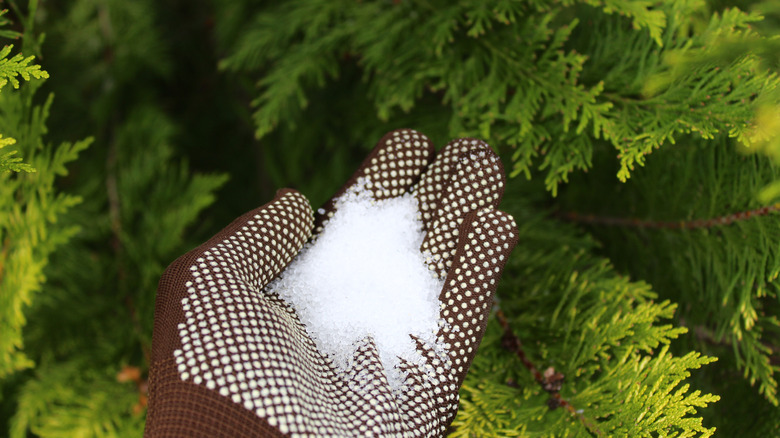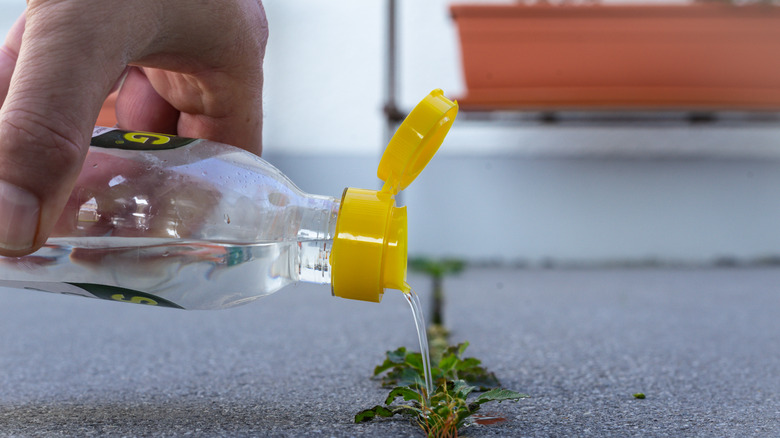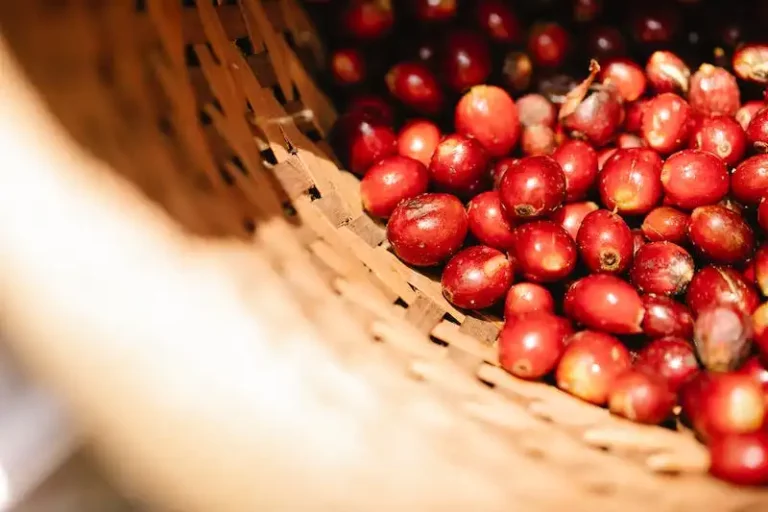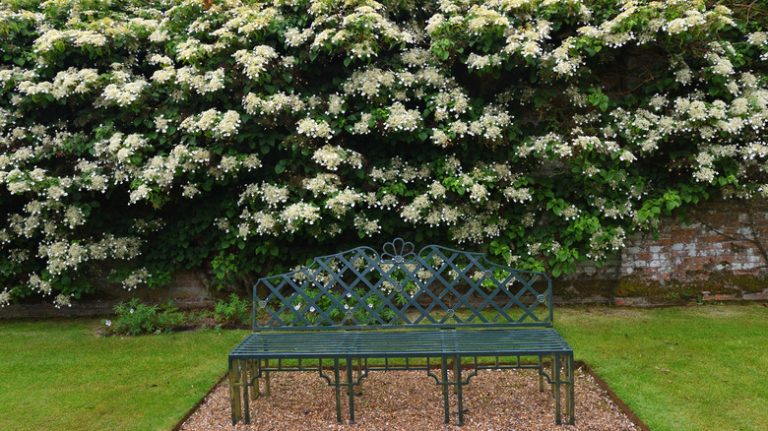Garden
Michelle Roberts-Garcia
Controlling the weeds in your yard can seem like an uphill battle, but the fight is a necessary one. Not only do weeds ruin an outdoor aesthetic, but unruly plants can negatively impact a pruned design. There are numerous brands of weed killer you can buy in-store, but if you prefer a more natural approach, there’s one back that has garnered attention from many people for its effectiveness.
Vinegar is a household staple that continues to offer useful cleaning hacks for everything from surfaces to laundry. However, using it with another common product can be the solution for annoying garden weeds. There are pros and cons to combining epsom salts and vinegar, so understanding both is important before implementing the hack. Using epsom salt in your garden is a great way to organically fertilize your plants, thanks to its mineral-rich makeup. Because of its effectiveness, people might not realize this duo should be approached with care, but when applied properly it can help your garden thrive. Here’s what you need to know before trying this trick.
The pros of this hack

Martina Unbehauen/Shutterstock
The biggest perk of using vinegar and epsom salt to get rid of pesky weeds in your yard is that both are non-toxic. Avoiding harsh chemicals and toxins will keep family members, pets, and plants safe. Both items can also be found in most households, saving money on store-bought solutions. Vinegar has acetic acid in it, and the amount of this in the liquid helps to dehydrate plants and kill them, at least the top layer. When combined with salt, which is another drying compound, weeds are helpless against the dehydrating powers they exude, and these non-toxic options are often preferable to their chemical counterparts.
Adding Dawn detergent can also help strengthen the results, but diluting the mixture too much will take away from the effectiveness. Make sure to apply a liberal amount to the roots; since this product is less potent than harsh chemicals, it might only help with the top levels of the weeds if you skimp on the product.
Be careful of surrounding plants

byrichardduebell.com/Shutterstock
The biggest thing to look out for is damaging your other plants in the process. Because of how dehydrating vinegar and epsom salts can be, especially combined, they can harm your intentional flora and fauna as well. Vinegar can also change the acidity levels of soil if added to it, and this can be detrimental for certain plants. Avoid getting the solution on soil that surrounds your flowers or other species you want to protect and focus specifically on the weeds and their roots.
To create your own epsom salt and vinegar weed killer, you can combine 2 cups of the salt with 5% diluted vinegar (white). One gallon of the liquid is a good amount to add to the salt, and if you wanted to throw in Dawn detergent, use only 1/4 cup. Procuring a spray bottle is the best way to apply the solution, but it can still be detrimental to animals while it is working, so keep pets far from the weeds you’re trying to get rid of. The pros certainly outweigh the cons, as long as you take precautions to get the best results from this hack.



